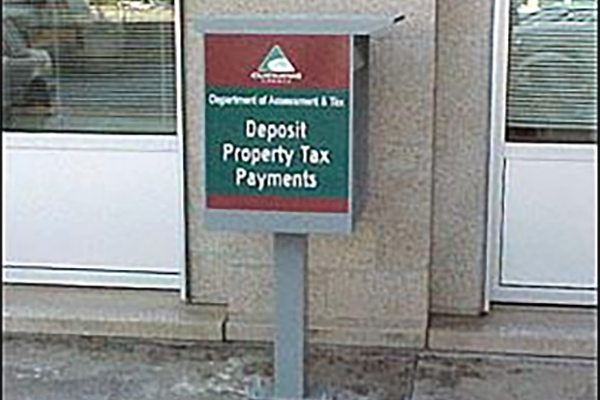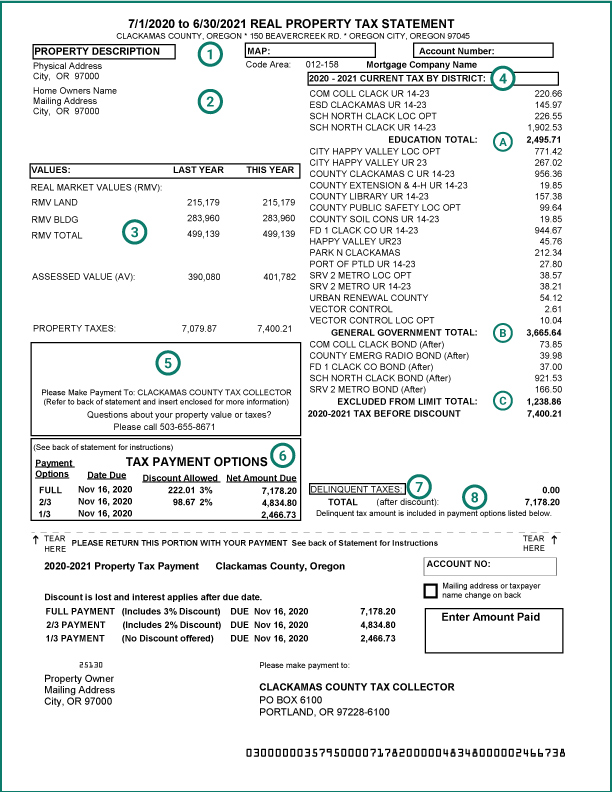Measures 5 and 50
Measure 5 Tax Limitation
The Oregon Constitution sets limits on the amount of property taxes that can be collected from each property tax account. These limits are often called the "Measure 5 limits."
To calculate these limits, taxes are divided into categories described in the constitution. The categories are:
| Education | $5 per $1000 of RMV |
| General government | $10 per $1000 of RMV |
Please note that these limits are based on the real market value (RMV) of the property, not the "taxable assessed value."
Some taxes, usually for general obligation bonds, are not subject to limitation.
If taxes in either category exceed the limit for that property, the taxes are reduced or "compressed" until the limit is reached.
Local option taxes are compressed first. If the local option tax is compressed to zero, and the limit still hasn't been reached, the other taxes in the category are proportionally reduced.
Measure 50 Value Limitation
Measure 50 rolled back the 1997–98 assessed (taxable) value of each property to 90% of its 1995–96 value. This is known as Maximum Assessed Value (MAV). Adjustments to MAV are made for items such as new construction.
Key facts:
- Limits future growth on maximum assessed value to 3% annually, unless it exceeds the real market value.
- Taxes are based on the lower of real market value (RMV) or maximum assessed value (MAV), which is known as assessed value (AV).
- Exceptions to the 3% cap are for items such as new construction, remodeling, new subdivisions, and rezoning which may increase assessed value and taxes more than 3%.
- AV can also increase more than 3% when Real Market Value is less than Maximum Assessed Value and market values are increasing.
- Established permanent tax rates for all local districts with existing tax bases and serial levies.
- Allows voters to approve new short-term local option levies to fund additional services or approve bond measures for capital improvements. These are outside the permanent rate limits and need to be approved at a general election or an election with at least a 50% turnout (double majority).
Helpful Videos
Video courtesy of Washington County
How to Appeal Your Property Value
If you disagree with the value of your property as shown on your tax statement, you may file an appeal with the Property Value Appeal Board (PVAB). You can get petition forms and information from the County Clerk by calling 503-655-8662.
A reduction in RMV will not mean a reduction in taxes unless the RMV is reduced below the AV — except in situations such as new construction and remodeling, if RMV is lowered then AV is reduced and taxes are decreased.
Note: Some properties may experience a small refund, particularly where there are school local option levies, when RMV approaches AV due to the Measure 5 tax rate limits.
 Translate
Translate










